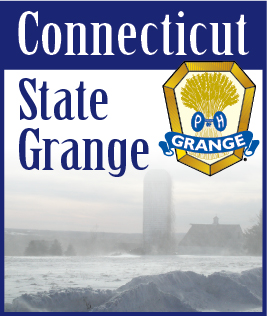| FEBRUARY 4, 2010 -- Visitors to the Oliver H. Kelley Farm enter the visitor center in the 21st century and walk out the back door into the 19th century.
The Oliver H. Kelley Farm is maintained by the Minnesota Historical Society as it would have been when Kelley, a Minnesota pioneer, worked the farm in the 1850s and 1860s.
Kelley is most known for helping found the National Grange, but he also helped start the organization now known as the Minnesota State Agricultural Society, which runs the state fair, and the Minnesota Fruit Growers Association, now known as the Minnesota Horticultural Society.
This year, the Minnesota Historical Society is requesting $9.857 million in bonding funds to remodel and expand the visitor center at the Kelley Farm, make updates to the historic Kelley home, build a four-season multi-use picnic shelter, and install historic reconstructions of an ice house, smokehouse and windmill.
"Our visitor center right now doesn't meet the needs of our current audience," said Bob Quist, historic site manager at the Kelley Farm.
The center was built in 1979 and includes office space, an open room, a room filled with displays, a small gift shop and bathrooms.
It's a challenge to run school groups of 100 children who have been on the bus or touring the farm for two to two and a half hours through the bathrooms made for two users at a time, said Ann Olson Bercher, program supervisor at the Kelley Farm. The displays haven't been changed since 1979 and contain a lot of reading, which some like, but schoolchildren don't. Also, there aren't any interactive displays in the visitor center.
The Kelley Farm revitalization didn't make the governor's bonding plan, released Jan. 15. The governor's plan is for $685 million in general obligation bonding, with most of the money -- 30 percent -- targeted to higher education projects.
"This bonding bill is financially responsible and addresses important state needs such as flood mitigation, public safety, higher education and transportation infrastructure," Pawlenty said in a press release. "This proposal is affordable and appropriate."
Meanwhile, legislators are planning to put a $1 billion bonding bill on the fast track.
Legislative leaders have proposed having the bill ready for floor action in the House on Feb. 15. The Legislature reconvenes on Feb. 4.
"If the money is out the door early we can take advantage of the entire construction season," said Rep. Alice Hausman, DFL-St. Paul, chairwoman of the House Capital Investment Finance Division, in an article in Session Daily. "This year our taxpayer dollar will go much further than if those projects were put off for a couple of years and the economy rebounds, and, perhaps, inflation returns."
|
